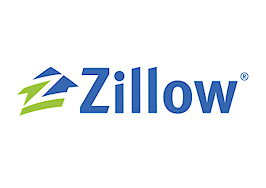Although it’s not pointing a finger directly at Zillow, the National Association of Realtors is warning that brokers who do not act in the best interests of their clients and fail to disclose the pros and cons of marketing strategies such as “coming soon” advertising may be exposing themselves to legal and professional liability.
In an article posted on the trade group’s website, NAR General Counsel Katherine Johnson listed the steps that brokers and agents should take to ensure that their clients are able to make an “informed determination” of whether a “limited” marketing campaign is in their best interests, and that they are in compliance with state real estate license laws and regulations, MLS policies and the Realtor Code of Ethics.
Real estate listing portal giant Zillow launched a new feature last week allowing certain agents, brokers and MLSs to market homes on the search site as “coming soon” up to 30 days before they hit the MLS.
Zillow’s “coming soon” feature has sparked a debate in industry circles about whether it could undermine the role of the MLS, and about potential legal and regulatory implications.
When asked whether Johnson’s “coming soon” article was prompted by the launch of Zillow’s new “coming soon” feature, NAR spokeswoman Sara Wiskerchen said, “We simply wanted to provide information to our members on this timely topic.”
At least one brokerage, Indianapolis area-based F.C. Tucker Co., on Tuesday warned its 1,500-plus agents that participating in Zillow’s “coming soon” feature would result in a violation of Indiana licensing law and is subject to fines of $600. The warning was based on policies put in place last year by the Metropolitan Indianapolis Board of Realtors (MIBOR) to address “coming soon” and “pocket listings,” the brokerage said.
Zillow requires agents to certify when uploading a “coming soon” listing that they are complying with the rules and regulations of their local MLS, local association of Realtors, their brokerage and their state’s licensing laws. Agents also certify that they have their seller’s permission to market the home before putting it in the MLS. Zillow has said it has a compliance system in place to monitor possible violations and keeps an audit trail of each “coming soon” listing.
Commenting on a June 11 Inman News story, Zillow spokesman Jay Thompson said that “coming soon” listings “are another way to expose your listings to a large local and national audience. Your local rules and regs must be followed, participation is voluntary and of course you should discuss this with your sellers, just as you do with all of your marketing plan.”
Thompson said that Zillow’s “coming soon” feature may not be the right marketing tool for every situation, “but could be a powerful way to gauge interest, ‘feel out’ the market and get a leg up in a competitive marketplace.”
Premarketing has become more common as inventory shortages in many markets have created an imbalance of buyers and sellers. That’s made it easier for brokerages to market listings to buyers they’ve already lined up, rather than offering to split commissions with other brokers who can bring a buyer to a sale. Homes that are marketed outside of the MLS, and publicized only within a brokerage or on private networks, are often referred to as “pocket listings.”
Zillow Chief Industry Development Officer Errol Samuelson has said that that Zillow is out to “co-opt” pocket listings, by allowing homes to be premarketed to millions of visitors to the site.
Johnson’s article on NAR’s website noted that there are many definitions of “coming soon” marketing strategies.
Some involve unlisted homes “that may or will be listed with a broker in the near future, while others relate to properties that are subject to listing agreements where property is available to potential purchasers only through the listing broker and not available, temporarily or indefinitely, for showing or purchase through other MLS participants.”
In either case, she said, “coming soon” properties are often withheld from the MLS.
Johnson said most sellers consider getting the highest possible price for their home, on the best terms, to be in their best interest. The way to best serve those interests is to maximize the home’s exposure to potential buyers, she said.
“Restricting the marketing of a seller’s property to only small networks, private clubs, or even to national websites without also making it available to other area brokers and agents and their buyer clients through the MLS results in the property not being exposed to the widest group of potential willing and able buyers, and may not provide the seller the best opportunity to attract offers at the highest price,” she said.
Johnson also noted that MLS data helps determine home valuations through appraisals, comparative market analyses and broker price opinions, and aids buyers and sellers in deciding a property’s fair market value.
“Withholding that market information from the MLS hinders consumers’ ability to receive useful estimates of value,” Johnson said.
Johnson advised that if brokers decide “coming soon” advertising is in their clients’ best interests, and confirm their clients understand the implications of that decision, they still need to make sure they are complying with state licensing laws and regulations.
The Colorado Real Estate Commission has written a position paper in which it warns brokers that advertising listings as “coming soon” and subsequently selling them “off market” is only OK if sellers realize the risks — and agents aren’t just trying to collect both sides of a commission.
“[A] broker who places the importance of his commission above his duties, responsibilities or obligations to the consumer who has engaged him is practicing business in a manner that endangers the interest of the public,” the paper said.
The paper requires licensees to describe in the listing contract the marketing plan agreed upon by the broker and seller prior to any marketing being performed.
The South Carolina Real Estate Commission also requires that a property advertised as “coming soon” first have a listing agreement with the seller in place.
Other than those two states, NAR is not aware of any other states that have offered similar positions, the trade group told Inman News.
In regards to the Realtor Code of Ethics, brokers must, in addition to promoting the clients’ interests, “present a true picture” in their advertising and make property available to other brokers for showing to prospective buyers when it is in the best interest of the sellers, Johnson said.
“Failing to do so harms the reputation of the broker and Realtors generally and may result in disciplinary action from the broker’s local association of Realtors,” she said.







